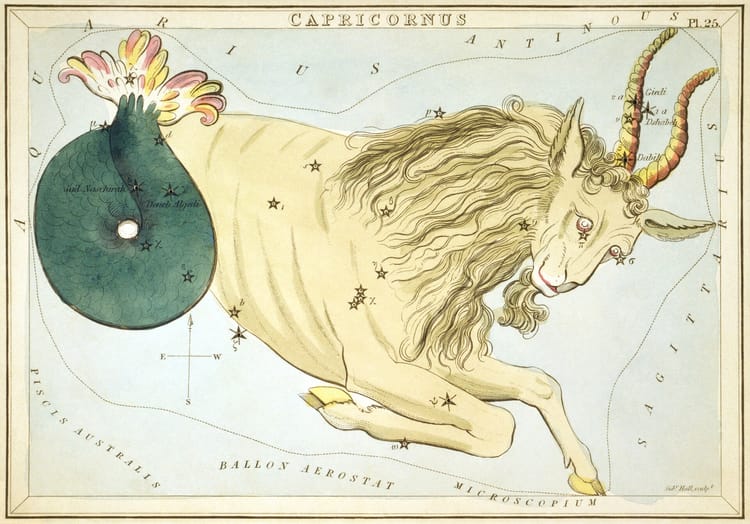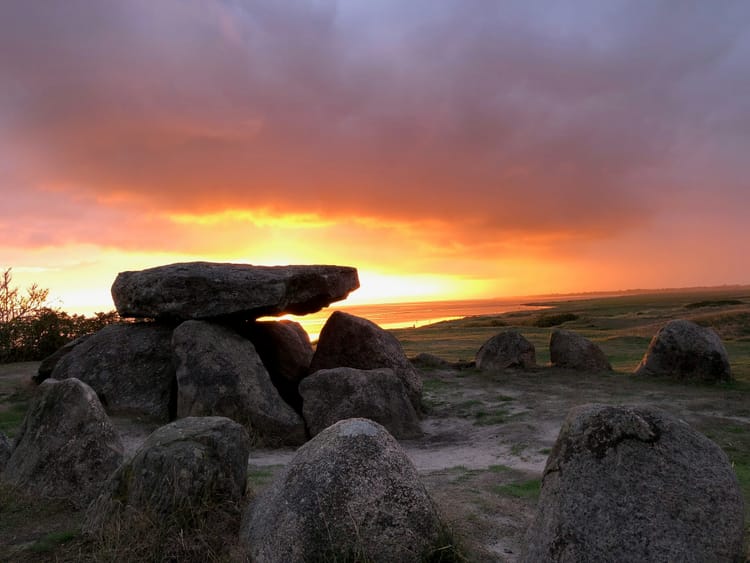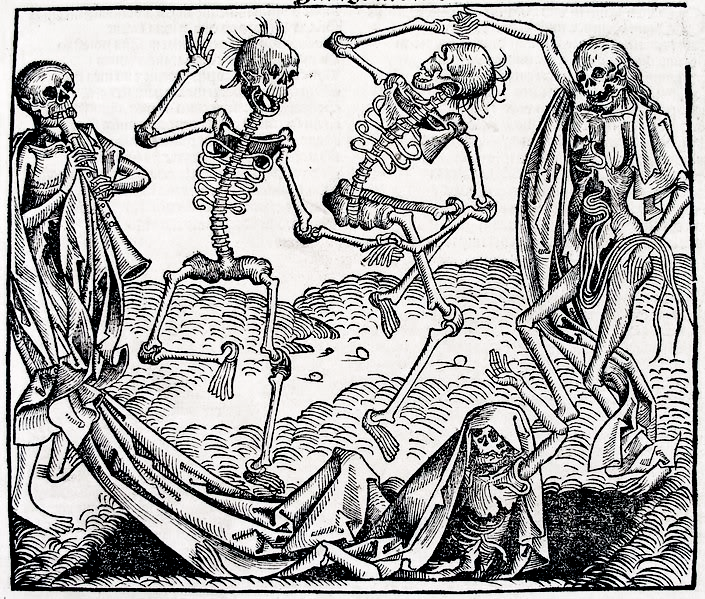Last Quarter: An alchemy of grief

It's Friday. Hello. This post may be a strange one, and I hope that any more alchemically-informed readers can be patient with it, especially since I would love their feedback. I will also warn that there is some brief but unpleasant description of things that dead bodies do.
I'm trying to write an alchemy of grief. I say an alchemy because I'm someone who increasingly flirts with the history and visual language of alchemy, but who does not practice it. Much of what I do practice has some roots in or ties to alchemy — I make use of the planetary symbols, I deal heavily with matters of the classical elements, and so on — and I can recognize a few other symbols of the metals or other types of matter, and I know various things that the ancient alchemists sought to achieve. Yet it's all a novice's knowledge.
Conversely, there is no one alchemy to begin with. I know enough of the field to know that each writer in the alchemical tradition has created their own system. The fault in building one's own alchemy would never be that it's non-canonical; this is not a field of life activities in which it's possible to be "wrong," and that's why science scorns it. But by the same token, it would be dangerous to posit an authoritative understanding of all the alchemy that's come before you if you haven't actually read any treatises, and it would be dangerous to posit an authoritative understanding of consensus reality just because you're an alchemical expert; charlatans walk those roads, and I scorn them even in such matters that I think post-"Enlightenment" rational inquiry can't address.
The need for a metaphor
I am building an alchemy of grief as a metaphor, not as a scholarly occult document, because there is something about the Magnum Opus — the Great Work, the creation of the Philosopher's Stone — that seems to give me clarity about stages of many categories of personal growth and psychological processing[1]. This includes a sequence of grieving that means more to me than Kübler-Ross' traditional five stages (denial, anger, bargaining, depression, acceptance). The Kübler-Ross model is increasingly discredited today; besides the most precise criticisms I could paraphrase from other people, my general awareness of (and shared belief about) the model is that its described emotional states do not really flow in a guaranteed order.[2] Denial might arise at any time as a loved one's presence occasionally seems to endure, ghostlike; acceptance might seem a sure thing at first, only to slide into depression later.
Apparently some psychologists disagree that it even makes sense to describe the grieving process as having "stages" at all, but I'm not sure how I feel about that. I don't think it's an accident for people to talk about the process. It's self-evident that if grief is able to heal in the first place, then there is at least one stage of the open wound and a second stage of the final, scarred tissue. Between this point A and point B, perhaps it could be helpful to delineate more about the transitional state or states that occur. I'd like to have a language for those because in my own experiences of grief, sometimes I can feel "halted," and in order to surmount whatever obstacle is in my path, it seems relevant to understand where on the path I even am. Denial, anger, bargaining, depression, and acceptance do not work as the guide posts there, so what does? For me, it seems to be alchemy.
I am basing my haphazard model on my own grief for various deaths. I haven't lost nearly as many loved ones as some people have lost by this point in their lives, but at age 35 I've at least dealt with as many deaths as might be expected, with a couple that are also more unusual. Due to the disconnections of our era, some of my relatives' deaths (certain cousins, most grandparents) have not affected me like some friends' (an elder queer friend who died of pancreatic cancer last summer), or it's taken months-to-years for the grief to strike; due to where else I've looked for role models and familial figures, some of the harder deaths for me to process have been of people I didn't actually know (David Bowie).
I think for people of my generation, living where I live, this is actually rather typical. One of the outliers is what I mentioned early on in this newsletter; I lost my uncle when I was quite young, a self-inflicted death that to this day remains a mystery as to whether it was true suicide or drug-induced. The other outlier is the source of the grief I am still living with today — my cat who was my familiar. I've been without him for almost ten months, but like my owner's cat who died a couple years before, it's taking me longer to process than practically any other human death, and in my familiar's case I know it's nowhere near over. As it only makes sense to feel profound, deep grief when losing a companion who lived with you, who you cared for halfway like a child, and who you had to personally choose to euthanize, I know that I'm not alone in this; but for anyone who never keeps a pet, they will never understand. The death of a child would surely feel even worse, but also qualitatively different.
So, with this experiences behind me, I look to the Magnum Opus. What is it? More precisely, what do I understand of it?
It seems to be a recipe, but where the key ingredient — the prima materia — is left undefined. The prima materia is the primordial, quintessential stuff that forms the matter of the universe, yet of course no two alchemists, philosophers, or for that matter actual physicists can agree on what that stuff is; furthermore, some writers discussing the prima materia seem to intentionally dance around a direct description. I find this quite hilarious, to be honest. No wonder an alcehmist would struggle their whole lifetime to create the Philosopher's Stone, if they didn't absolutely know what they had to make it out of in the first place. It would be like finding an extraterrestrial and asking them to cook bacon without even teaching them what a pig is first, maybe not even what meat is or where it could be found.
The steps of the Magnum Opus are also abstract. They are classically described in terms of colors, but without doing a deep reading of any one text, I'm not sure what any one writer means about the colors. I imagine — and I wish some modern Hermetic scholar were panting on the sidelines in anticipation of slamming down their own interpretation to help me out — that in keeping with alchemy's earlier permutation of the scientific "fuck around and find out," the point is to take the open-ended prima materia, then apply various actual chemical transformations upon it such that it will change appearance, cycling through the desired colors in question until it achieves the final one that signifies the Philosopher's Stone has been created. But what those transformations are, of course nobody really agrees again. 15th century alchemist George Ripley recommends calcination followed by (dis)solution, separation (whatever that means), and nine more steps, but that's just his version and I imagine that it's dependent on whatever he thought the prima materia was.
And even the Magnum Opus' goal is less precise than saying "we wish to make the Philosopher's Stone" would suggest — for the Philosopher's Stone commonly is said to be capable of turning base metals into gold or silver, but it might also turn rocks into gems, restore life to dead plants, be diluted in wine to create the "elixir of life" (i.e. a immortality-granting or rapid-healing drink), or even somehow be used to create homunculi. Different writers' opinions yet again vary. I feel like what would really link alchemists together in trying to create the Philosopher's Stone would not so much be what they wanted the stone to do, but the agreement that they wanted to make something very powerful and important.
Thus, in brief, the Magnum Opus seems to me not really a recipe at all, but a structure for writing one's own recipes. The structure imposes a few basic expectations for how to linguistically refer to the ingredients, and for roughly how many steps there might be, and for how to linguistically refer to the final product. That is all.
The Magnum Opus might just be a semantics game. A classic example for any ritualist, myself included, who comes to understand that the medium is the message, that the point of performing a ritual is the performing and not the ritual's actual content. And hence the Magnum Opus' perfect transferrability to anything where a process needs a new language to describe itself.
So now I map it onto grief.
I. Nigredo (Putrefaction)
The prima materia I have begun with is myself, specifically my personhood as defined by relationships with other beings. No matter how much I might speak of grief as reaction to losing someone else, the someone-else is dead (or so permanently absent from my life that they might as well be dead). In a framework without an afterlife, it's not as if the tears I shed "for them" will be sensed by them and give them comfort; even if I posit that some flavor of consciousness remains to them, they are now in such a changed state that I doubt they would truly feel sadness for their own death. I am really grieving the disruption of my place in the world as it is destabilized by losing an anchor point. Sometimes grief is even nakedly for the self — grief for something I used to be able to do with myself that now I cannot.
The first color traditionally attributed to the Magnum Opus is black, hence this stage's name Nigredo, blackening, melanosis. It is also called putrefaction, which is the point in animal decomposition marked partly by how the flesh's discoloration shifts into first a slightly greenish tint and then increasingly to brown-black. Exactly how strongly this color presents depends on natural skin pigmentation, but the principle is always the same. Once the body turns this shade, it releases the noxious smell of death, as gases built up inside reach a critical pressure, burst free of the abdomen, and are accompanied over the next several weeks by the liquefication and sloughing-off of all things that are not the skeleton within.
In this time, all is lost. All is lost.
This is when the pain is a knife, when the "I" of me is splintered and melted and thrown away from the blank void at the center. I have cried so loudly that I have been nothing but that noise. I have fallen forward without thought for catching myself. I have been rooted to the spot with electric agony that is perpetual, it is always this, past and future collapsed into the eternal now of my companion's absence, oh god, he is gone, please, he is gone, he is gone.
Sometimes the pain ebbs, just enough to permit moving, saying words, trying small tasks, perhaps even distracting oneself for a good while. Yet the pain has exhausted the body so completely that there is no spirit in the movement, no tone in the speech, no attention to detail, no joy from the immersion. The living self has died as much as it can while not dying; it is its own stripped husk.
I have never known grief to take me without starting like this. The nigredo may last only a few minutes, or it may last months, but it is always my beginning. In that time, the very light of the Sun is blotted out, eclipse-like. I know that some alchemists have named this phase the Black Sun; this has no relation to the Nazi symbol whose meaning is debatable but is better critiqued in the context of solar wheels in folk art. The true Black Sun is not politically affiliated, but strikes me instead as an open-ended concept of total destruction which must be undergone as the starting point for self-transformation.
It is like the Death card in tarot. It is the chaotic agony of the beginning. It hurts, but it is not to be shunned, only endured, and in the full-heartedness of the wandering Fool, even embraced as catharsis.
II. Albedo (Purification)
I suppose that some people who pursue infantile fascinations with Nazi occultism would have something to say about the blackening turning to Albedo, the whitening, the leucosis, but I see so much more here than racialist bullshit, and of course the formulation of the Magnum Opus in this language is at least two millennia old. The second stage refers to purification of some kind, but the "pure white" here is not a moral assessment; think again of death. After putrefaction is complete, the white skeleton remains.
I feel this both as a positive and negative state. When bleached to the bone, there are no burdens, but there are also no beauties. When the putrefying stage of my grief has run through me and I finally have nothing left, the shell of myself has taken full hold. I no longer suffer and yet I am still not myself again yet. The light of the White Sun is not brilliant but pale, ghostly, perhaps the cold form reflected at night by the Moon.
In many cases of prolonged grief that I've witnessed on other people's parts, this is the longest stage and in a way the stage that makes me feel the most sadness on their behalf. It is terrible to empty yourself completely and then be filled up by nothing else. I think this is why elderly people who lose their life partners are so statistically quick to follow them in death.
I've always been lucky not to linger here long.
III. Citrinitas (Awakening)
From here the comparisons to actual corpses end, though it's perhaps the rebirth from decay. Some kind of action must be taken upon the prima materia — upon the grief — to move it from white to yellow, Citrinitas or xanthosis. This is described as an awakening. The Sun rises yellow on the horizon, promising a clear and stormless day.
I think this is the stage I am in right now for grieving my familiar. Things are not easy here, but a new version of myself-without-him feels possible. That version has not yet become real, but there is a concept — potential. I've started moving, thinking, talking, doing, with less limitations than I felt six, eight, ten months prior. I'm invigorated.
This would not be possible without the right nutrients to fuel me turning around this bend. The self that I shed during Nigredo must land in fertile ground before it can grow into anything else, and if the ground is more like sand or silt or clay then my old self must have contained enough of the right things in it to help create good, humus-rich loam. Thus in my Albedo I must be enriched despite my grief, whether the enrichment comes from my environment or from some self-guided initiative.
But while I've been lucky enough to always encounter such sources through all my most significant grieving periods, this is still not the last stage. Here in Citrinitas all things remain delicate, easily broken. A seedling lacks the resilience of the tree it will become. And so it's one thing to have a vision for my new, regenerated self, but it's another thing to choose to really become that self. I have competing visions, in any case — now that my familiar is gone, is it right for me to seek another one? What about to simply seek another cat for the sake of having a cat, and for any magical relation let the chips fall where they may? What if my next familiar should not be a cat at all, given that some other animals interest me almost equally? What if I should just put my emotional and economic investment into a stronger focus on bearing a human child? What if I need to do some combination of these things?
I don't know what's right yet. Yet I must make the choice at some point, otherwise I will always feel a certain, gnawing insecurity about my place in the world.
IV. Rubedo (Completion)
This is the final stage and what, right now, I'm still waiting to reach. My Philosopher's Stone is a golden, immortal, all-healing memory of love between my familiar and I.
I hope I can determine the mystical genesis needed for this. What stimuli must be applied? What further ingredients must be mixed in?
The Rubedo is the reddening, and though to some this might sound like a color of danger, but so far I understand that alchemically it's more like the fiery phoenix rising from the ashes, or the blood that gives the flush of life back to the skin, or the red blooming rose which has grown out of the enriched soil. To me personally, red is a sacred color for its duality: as warning and as celebration. It is erotic, revolutionary, and it demands attention.
Perhaps we want a Yellow Sun in the morning, but the proverb of course finishes red sky at night, sailor's delight. As the course of the healing, chlorophyll-activating daylight assists in my corpse's growth into a tree, there is nothing I would like to see more than a brilliant red sunset.
My mother lost a dear friend of hers to cancer when I was young. She would thank him every time she saw a sunset where the whole sky seemed on fire. She said she gave him thanks because she knew he loved sunsets so much; but looking back, I think it was fitting regardless. I thank my familiar for the rain — a story which deserves its own telling elsewhere — but maybe, with time, he can bring me red sunsets as well.
That's my conclusion for today. The metaphor is laid out; perhaps it works, but I will think on my alchemy of grief further in the coming months. And in writing even this much, I've found a thirst to dive much more into others' alchemical texts than I've ever done before.
[1] I have very mixed feelings about Jungian psychology and am not very familiar with how Jung adapted the concept of the Magnum Opus for his own purposes; but needless to say, I'm not even remotely the first person to think of alchemy's psychological applications.
[2] Tangential to the overall post but of crucial importance to understanding "the Kübler-Ross debate" itself: please also note that Kübler-Ross was attempting to document terminally ill patients' relationship to their own impending death. Hers was a model of anticipatory grief — not necessarily grief for what's already been lost. I've experienced anticipatory grief over a multi-year period, specifically for the Earth and for my now-gone familiar. In my opinion, that's had a startlingly intense effect on my health, both mental and physical, but it's a kind of grinding background noise rather than something that acutely leaps out.
As usual, I appreciate your reading. If you could spare $1/month to just help me break even on the costs of writing and sharing these thoughts, I would really appreciate it — but this week, like in so many other weeks, I have found again that simply spilling these words was its own reward.
Next week, I have a post for paid readers about Litha/Midsummer, with a particularly ecstatic focus; the week after, I'll have a post for everyone to finally plunge into my opinions about herbalism.





Member discussion